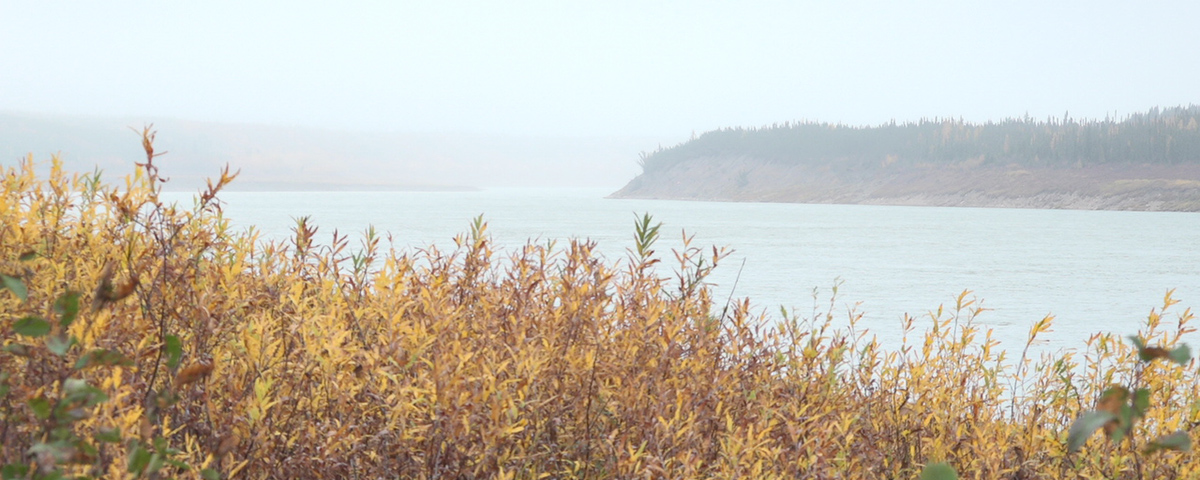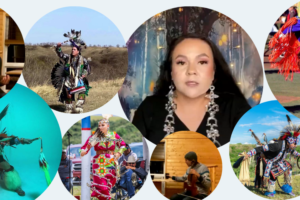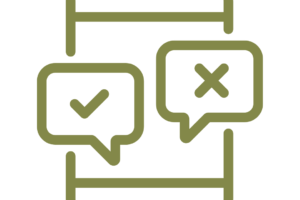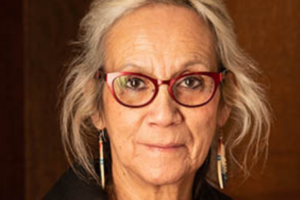Surviving Slow Internet in the North
By Michael Tyas
I visit a number of First Nations communities in northern Manitoba through my work with the Wa Ni Ska Tan Alliance of Hydro Impacted Communities. Slow data service is an everyday reality. Now, with the COVID-19 Pandemic forcing many to shelter-in-place across Canada and around the world, the stress on mobile and internet infrastructure will be even worse.
In order to survive slow data and Internet I realized that I would have to change the way that I use data. I figured that if I could make my phone only ask for data when I wanted it to, that it would have a better chance of getting through. I discovered a number of apps and mobile features to help in this regard. These options didn’t give me an information highway; more like an information bush trail! Better to go somewhere slowly than nowhere at all. By reducing requests, my phone made more efficient use of the data I was able to snag.
Suggestion 1. Force your phone to use data sparingly. Try the following search terms: how to make my phone use less data. How to treat wifi as metered (Android)
On both iOS and Android, your settings can control how data is requested. You don’t want a message to your kookum to be blocked by a stupid Candy Crush update, do you?! This feature limits certain apps from asking for data when they are in the background and restricts large downloads unless you’re on Wifi. If you find yourself on a suffering Wifi connection, you can also tell your Android phone to treat wifi as “metered” which tricks your phone into believing it’s using cellular data and therefore minimizes data used.
On Android this feature is called Data Saver, and iOS it is called Low Data Mode.
Suggestion 2. Force your apps to use data sparingly. Search term: How to limit (insert specific app) from using too much data. Youtube, Netflix, Facebook, and app stores can use large amounts of data. They also have data saving features baked in, and some even have offline modes. Visit the settings page for each of your apps to see if you can lower your data usage.
Suggestion 3. Use speciality lite apps or visit sites on your browser. Search term: Best Lite apps for data saving 2020 (or whatever year it is). Is there a Facebook (or any app) “lite” mode? List of top lite websites 2020.
Even better than changing settings in your traditional apps is to replace them with dedicated lite apps, or to visit app sites within your browser. For example, you can visit https://mbasic.facebook.com/ for a bare-bones version of Facebook that sips data, or you can download Facebook Lite from your app store. Google has a suite of lite apps with the Go moniker attached, and they all have two things in common. They are all very small to download, and they are all designed to use as little data as possible.
Here’s a shortlist of lite apps and URLs you can download or visit to replace the data hogs on your phone.
Social Media
- Facebook Lite, https://mbasic.facebook.com/
- Facebook Messenger Lite
- Skype Lite
- Twitter Lite, https://mobile.twitter.com/home
Photos, Music and Video
- Spotify Lite
- Youtube Go, m.youtube.com
- Gallery Go (your Google Photos cloud storage)
Browsers that compress data
- Opera Mini
- Puffin Browser Pro
($6.99 on Apple Store, no comparable free options on iOS)
- Lite Mail
- Gmail Go, or search for “Basic HTML version of Gmail”
Others
- Files by Google frees up space and can transfer files via Bluetooth to friends.
- Google Maps Go
My favourite data-saving app is Opera Mini for Android. With extreme data saver mode, it strips down webpages to their essential elements without all the bloat. You can choose to see only low-resolution images or turn them off entirely. Opera Mini has unfortunately been removed from the iOS store, however, you can try to find the app installation file and load it anyway on iPhone.
Suggestion 4. Switch back to dial-up internet and earn instant hipster-cred. My host was paying an arm and a leg for ‘high speed’ internet that had only 10-100kbps download speeds, if anything at all. If your high priced internet plan isn’t delivering what you’re paying for, perhaps consider that ancient technology, dial-up internet, still provides consistent 32-48 kbps download speeds for $10/mo or less for unlimited plans. You will still need a physical phone line.
Suggestion 5. Save big downloads for 4 AM. I’m only half kidding: When most people are asleep the communications lines are fast enough to seem normal. But this isn’t normal, it’s not right, and that leads us into…
Suggestion 6. Launch a class action lawsuit against big telcos that have redlined northern Indigenous communities. If you pay the same rates for cellular services as everybody else, you deserve comparable service within the coverage area, full-stop! It’s appalling that infrastructure is not keeping pace with demand. This COVID-19 crisis should bring to the forefront the need for decisive action, now!




